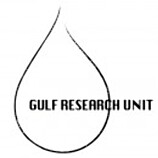
Archive: Gulf Research Blog
Blog articles from 2009 to 2012. The Gulf Research Unit is research programme based at the University of Oslo.
A window of opportunity to restructure Libya’s economy
Denne artikkelen er over ti år gammel og kan inneholde utdatert informasjon.
By: Ingrid Krüger
The conflict in Libya has led to a steep fall in oil production in the North African OPEC member, oil installations have been damaged and migrants have returned home. Furthermore, if the aftershock of the financial crisis leads to a sharp decline in global activity, it will put downward pressure on international energy prices, which implies a further reduction in the Libyan state’s revenues.[1] Libya’s new regime is provided with a window of opportunity to restructure Libya’s economy. And so, today’s economic challenges in Libya may be a blessing for Libya’s economy in the long run.
The founder of OPEC, Pérez Alfonzo, said in an interview[2] during the booming 1970s that petroleum was the devil’s excrement; “Look at this locura [(madness)] – waste, corruption, consumption, our public services falling apart …” The petroleum spending locura continued after the booming 1970s for the OPEC members. Today, the locura of the past necessitates a restructuring of Libya’s economy. With this year’s disruptions to Libya’s economy, people are likely prepared for changes. And the fall of Gaddafi’s regime provides people with hope for improved economic performance in the long run. With people in Libya prepared for changes – and hopeful that economic reforms will improve the current situation – the new regime can make wonders.
Libya’s economy under Gaddafi was characterized by corruption, mismatches in the labor market, and a poor business environment.[3] So, there is room for increasing both the size of the cake and the piece of the cake that goes to the poorest people. As international sanctions are removed and Gaddafi’s assets unfrozen,[4] large resources will become available to the new regime. As the fiscal space increases, the new regime is put to the test; will the new regime be tempted to evolve on politically motivated extravagant spending as the economy improves, just like Gaddafi’s regime? As Besley and Persson[5] argue, “almost all dimensions of state development and effectiveness are positively correlated” and “coevolve in a complex web of interdependent causality”. If the window of opportunity to restructure Libya’s economy is acted on, then political and economic stability may reinforce each other in Libya in the time to come.
[1] IMF. October 2011. “Regional Economic Outlook – Middle East and Central Asia”. World Economic and Financial Surveys. http://www.imf.org/external/pubs/ft/reo/2011/mcd/eng/pdf/mreo1011.pdf
[2] Karl, Terry Lynn. 1982. The Political Economy of Petrodollars: Oil and Democracy in Venezuela. PhD dissertation. Stanford University.
[3] IMF. October 2011. “Regional Economic Outlook – Middle East and Central Asia”. World Economic and Financial Surveys.
[4] For further details, see the Economist Intelligence Unit’s October Report on Libya: http://country.eiu.com/Libya
[5] Besley, Timothy & Torsten Persson. 2011. Pillars of Prosperity. The Political Economics of Development Clusters. Princeton University Press.






